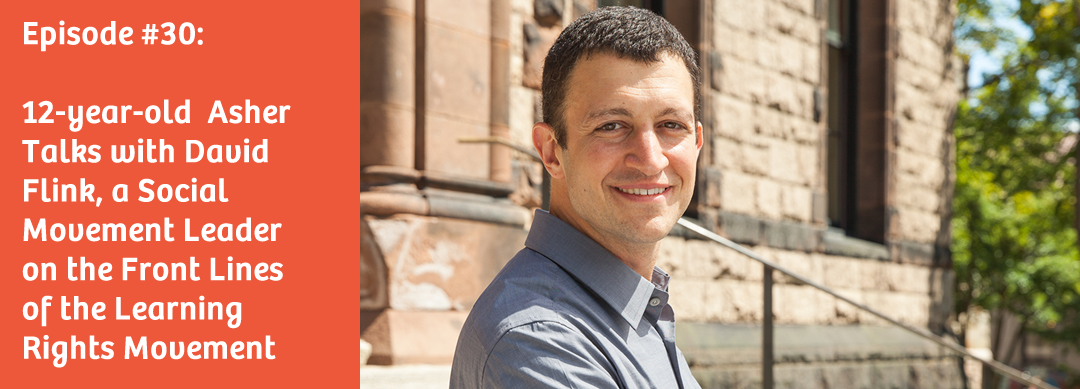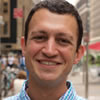
In this episode of the TiLT Parenting Podcast, 12-year-old Asher steps into my role as interviewer and sits down with David Flink, author of the book Thinking Differently: An Inspiring Guide for Parents of Children with Learning Disabilities, and founder of the mentoring organization Eye to Eye, which pairs high school and college students with ADHD and learning differences with younger kids who have the same diagnosis.
David himself has dyslexia and ADD and as a elementary and middle school student struggled to fit in. Since founding Eye to Eye while studying at Brown University, David has dedicated his life to empowering and inspiring kids with learning and attention issues and eliminating the negative stigmas that surround the labels associated with being differently-wired.
A little side note: this was Asher’s first time acting as an interviewer. He was a little nervous at first, but loved chatting with someone who he feels he has a lot in common with.
 About David: David Flink is a social movement leader on the front lines of the emergent learning rights movement. In addition to being Founder and Chief Empowerment Officer of Eye to Eye, David sits on four national nonprofit boards and regularly speaks to audiences ranging from students and educators to social entrepreneurs, policy makers, and corporate leaders. David holds a master’s degree in disability studies in education from Columbia University and bachelor’s degrees with honors in education and psychology from Brown University. His first book, Thinking Differently: An Inspiring Guide for Parents of Children with Learning Disabilities, was published by HarperCollins.
About David: David Flink is a social movement leader on the front lines of the emergent learning rights movement. In addition to being Founder and Chief Empowerment Officer of Eye to Eye, David sits on four national nonprofit boards and regularly speaks to audiences ranging from students and educators to social entrepreneurs, policy makers, and corporate leaders. David holds a master’s degree in disability studies in education from Columbia University and bachelor’s degrees with honors in education and psychology from Brown University. His first book, Thinking Differently: An Inspiring Guide for Parents of Children with Learning Disabilities, was published by HarperCollins.
THINGS YOU’LL LEARN FROM THIS EPISODE:
- David’s story of learning he had dyslexia and ADD
- Why “different” doesn’t mean “broken”
- How David learned self-advocacy
- The importance of confidence boosters along the way for kids with learning and attention issues
- How negative stigmas and shame surrounding learning and attention issues are perpetuated by secrecy
- How a family might frame their conversation around difference with their children
- Why the opposite of shame is pride
- David’s advice for kids with learning and attention issues
RESOURCES MENTIONED:
- David Flink’s website
- Thinking Differently:An Inspiring Guide for Parents of Children with Learning Disabilities by David Flink
- Eye to Eye National – mentoring organization



